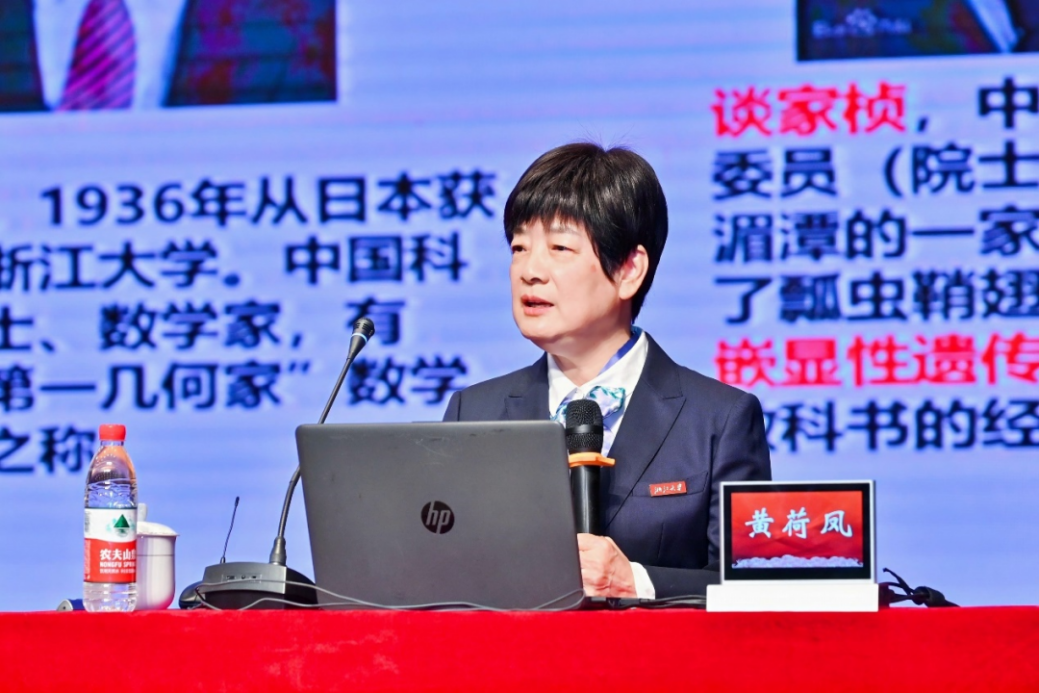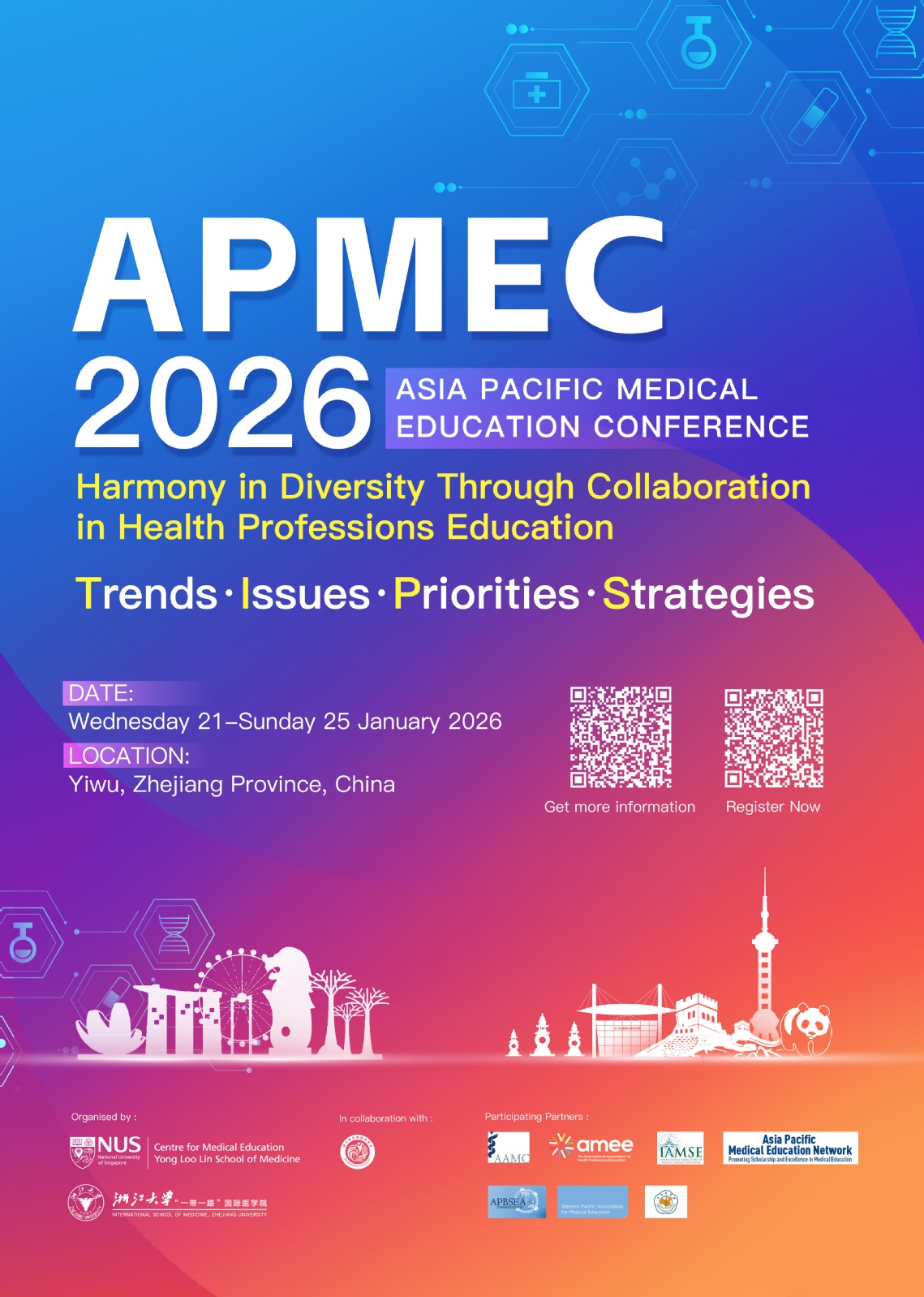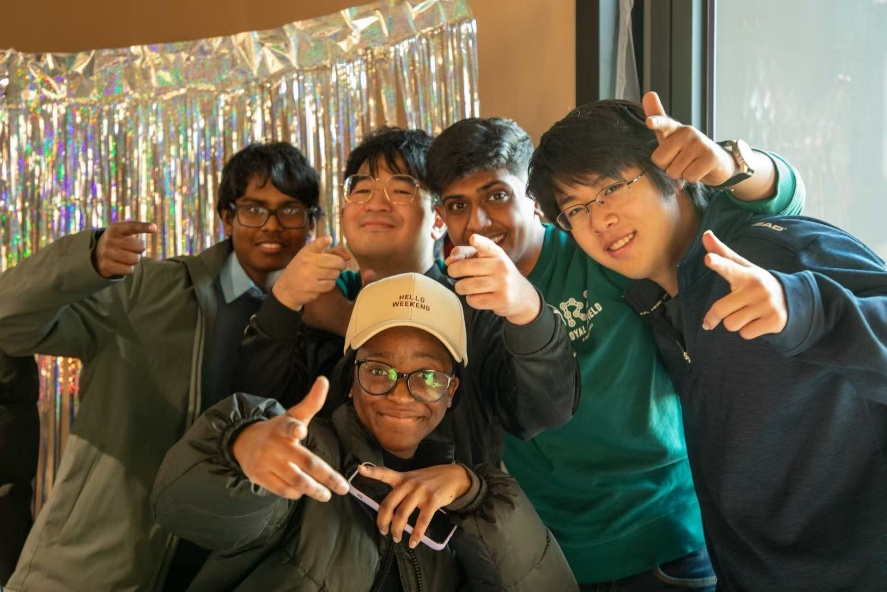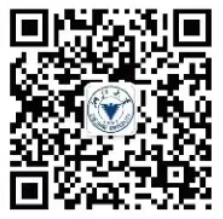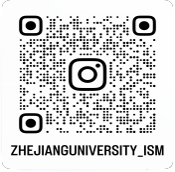From November 27th to 28th, experts from the Yong Loo Lin School of Medicine, National University of Singapore (NUS YLL), held a workshop at the International School of Medicine, Zhejiang University (ZJU-ISM), aiming to help clinicians, researchers, and lecturers find ways of integrating interactive teaching activities in both small and large group settings. Vice Dean of ZJU-ISM Chen Weiying attended the event and delivered an opening remark. The workshop, led by Associate Professor Koh Dow Rhoon, Dr. Lee Shuh Shing, the assistant director, and Ms. Jillian Yeo (Yeo Han Ting), the medical educationalist of the Centre for Medical Education (CenMED), drew the participation of 73 clinicians, researchers, and teachers.
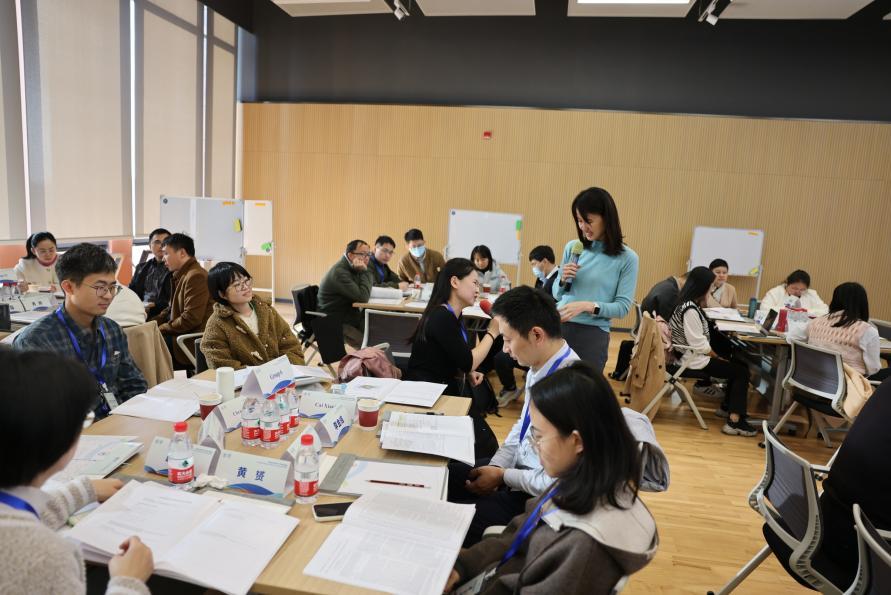
Upon the commencement of the workshop, Vice Dean Chen Weiying opened the event with a brief introduction to the new campus located in Yiwu. She outlined how the campus facilities were thoughtfully designed to cater to the diverse needs of students and staff, prioritizing their well-being. Additionally, she highlighted the immense opportunities the campus provides, particularly in the realms of education and research. After her enlightening introduction, Chen extended a warm welcome on behalf of ZJU-ISM and all of the participants, expressing deep gratitude for the privilege of hosting experts from a leading educational institution worldwide to share their best practices. Chen emphasized the significance of this international collaboration and shared her impressions of NUS YLL’s continuous commitment to improvement, highlighting their noteworthy contributions to medical education and scholarly achievements.
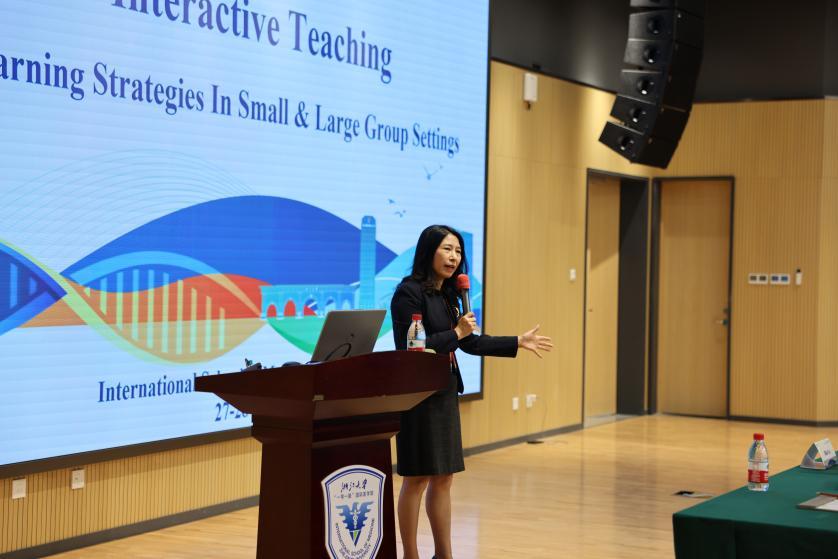
Discussions filled the room as the participants were separated into 10 groups. Participants reflected on their teaching styles and shared their teaching experiences and observations about their students’ learning methods.
Empathy emerged as a central theme in the discussions, with participants emphasizing its role in effective teaching and knowledge-sharing. Guided with a medical perspective, the participants claimed that they treat all students like their own patients; trying to understand them and pulling their full potential in becoming a doctor. Drawing from their rich experiences, the participants acknowledged the challenges students face in group discussions, particularly in finding common ground and responding primarily to open-ended questions or those perceived as less challenging. It was within this context that the NUS experts engaged in interpersonal discussions with ZJU-ISM’s participants, fostering a collaborative exchange of insights and strategies to enhance teaching practices.
Supported by research evidence, Dr. Lee Shuh Shing gave an in-depth explanation of the theories that have been proven successful in making large-group teaching more interactive. She emphasized the significance of encouraging students to actively participate in their learning, fostering independent problem-solving andbrainstorming. This approach not only engages students but also stimulates long-term memory retention. Dr. Lee emphasized the value of allowing teachers to address and correct misunderstandings among students through small group discussions.
Furthermore, Dr. Lee shared the different forms of small group learning and teaching, also sharing several ways to plan, prepare, and structure a small group teaching session, with the Jigsaw Method and Doughnut Rounds Method stimulating interest from the majority of participants. The overarching goal is to develop students’ cognitive skills without spoon-feeding information. As she aptly stated, “gain rewarding by student learning” captures the essence of fostering a learning environment where students actively engage with and comprehend the material.
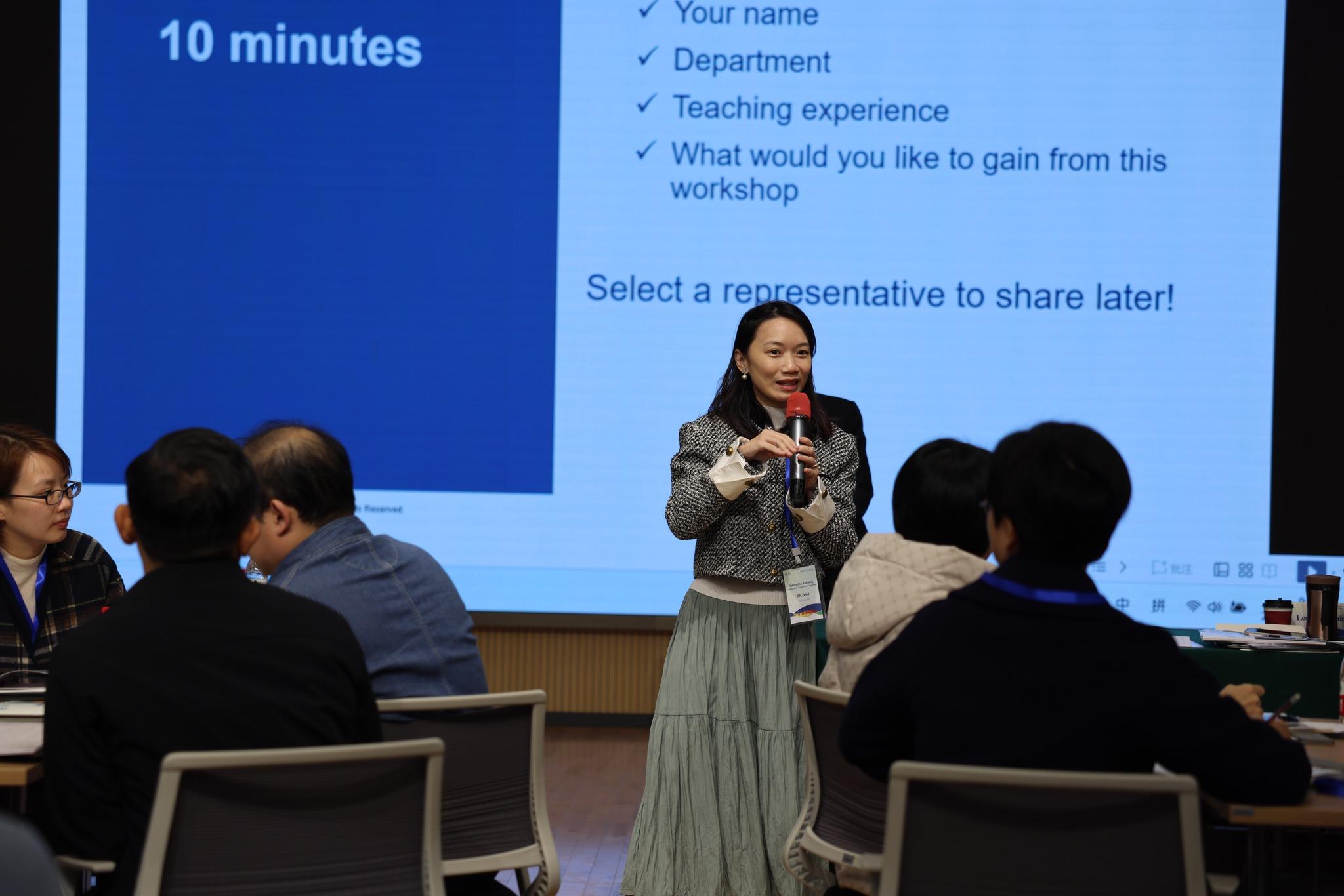
On the second day of the workshop, Prof. Koh Dow Rhoon provided a general principle about student engagement, including various techniques tailored to specific learning styles among students and strategies to prompt active participation and foster lively class discussions. In addition, he shared invaluable insights on handling diverse learner profiles, addressing scenarios involving dominant students, reserved students, facilitator-focused individuals, and unprepared students. Prof. Koh stated, “The more you encourage students, the more they will participate.” His teaching philosophy is having a dynamic between students and teachers, because an optimistic atmosphere makes students more comfortable to engage in the classroom.
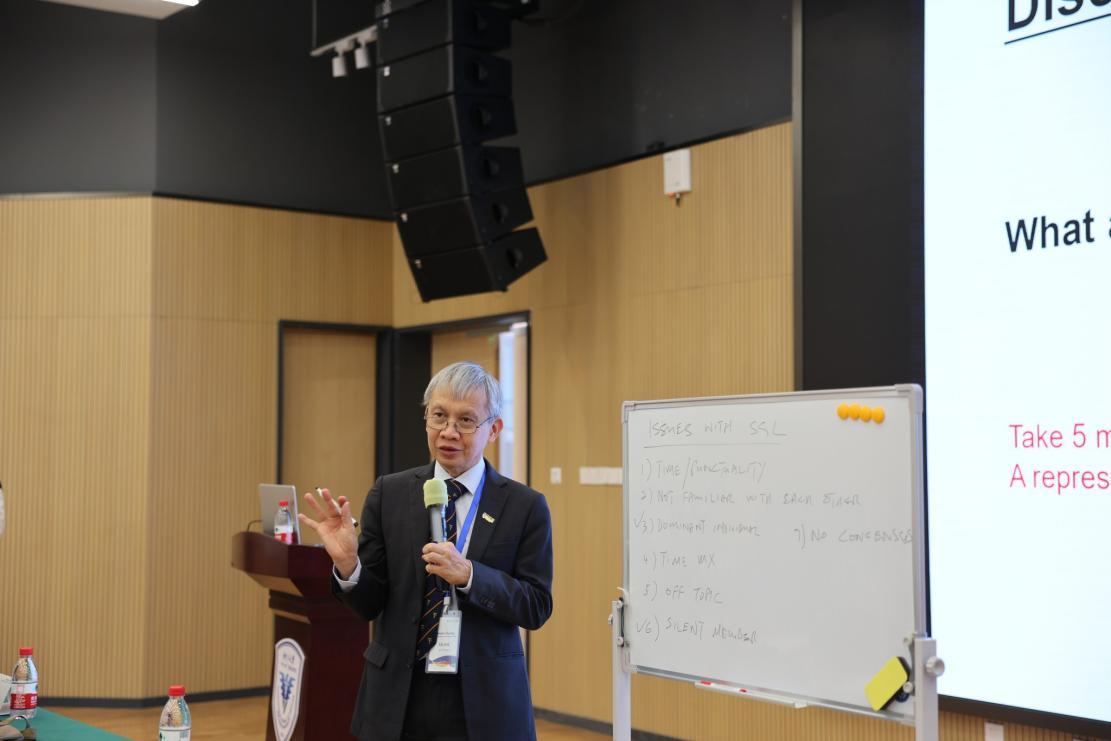
The session involved role-playing scenarios, allowing them to step into the roles of facilitators and students within a simulated classroom setting. Problem-Based Learning (PBL), Case-Based Learning (CBL), and Team-Based Learning (TBL) emerged as focal points, sparking both interest and curiosity among the participants. As the discussions unfolded, participants shared their perspectives and opinions on the most effective teaching approaches, particularly from the student’s viewpoint. In the end, participants shared their perspectives and opinions on the most effective teaching approaches, particularly from the student’s viewpoint.
In a brief interview with ZJU-ISM’s Media Club, participant Xu Xiaoming, expressed appreciation for how professors explained the underlying reasons on the necessity of PBL, CBL, and TBL. She also highlighted the valuable insights into how these methods could benefit the students.
Prioritizing physical and mental wellness, participants actively engaged in team-building activities at ZJU-ISM’s Sports Hall, fostering a lively atmosphere with cheers and laughter. The successful activities not only provided a refreshing break but also emphasized the central theme of the workshop: promoting teamwork. “I think ZJU-ISM places a high value on wellness. That is a good thing because, apart from studies, you have to also balance your life too”, Dr. Lee shared in a brief interview with ZJU-ISM’s Media Club, recognizing the significance of well-being alongside academic pursuits.
The workshop concluded with a new sense of learning for the participants given the various available teaching strategies — some that can be easily implemented and some that require more effort, as mentioned by Ms. Jillian Yeo.
Delegates from NUS YLL expressed their optimistic attitude towards ZJU-ISM’s educational system, stating, “Interacting with your faculty over the past two days has been wonderful. We look forward to future collaboration with your team.” They conveyed the enthusiasm to explore further cooperation opportunities, reinforcing the partnership between ZJU-ISM and Centre for Medical Education, YLL School of Medicine.
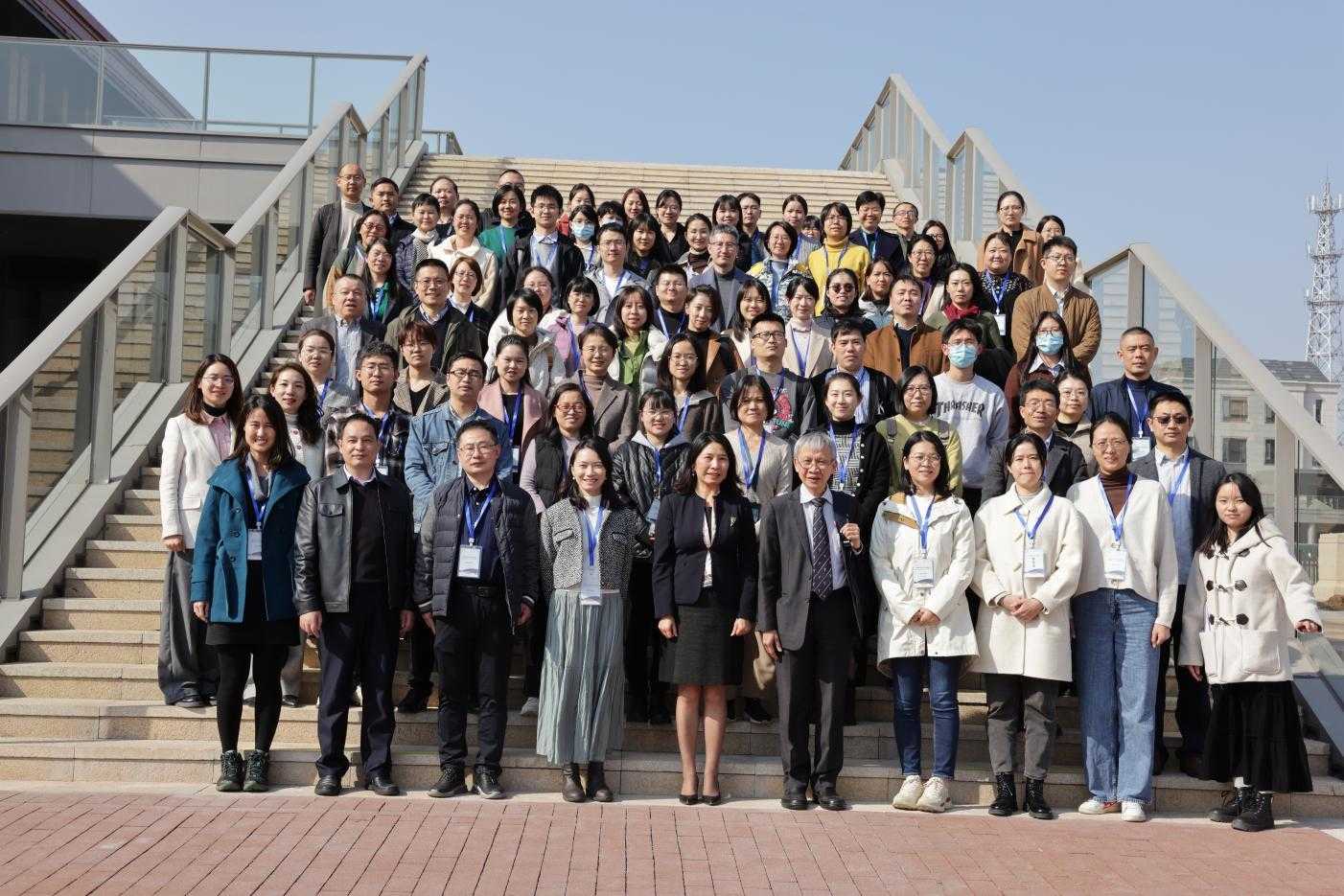
Written by: Achita Wiwaraworn, Christine Carleone Winata, Similan Kanjanapen, Theenmanee Kunadirek
Edited by: Han Qiqi, Xu Xiaoming
Photos by: Ye Linn Phyoe, Theenmanee Kunadirek



